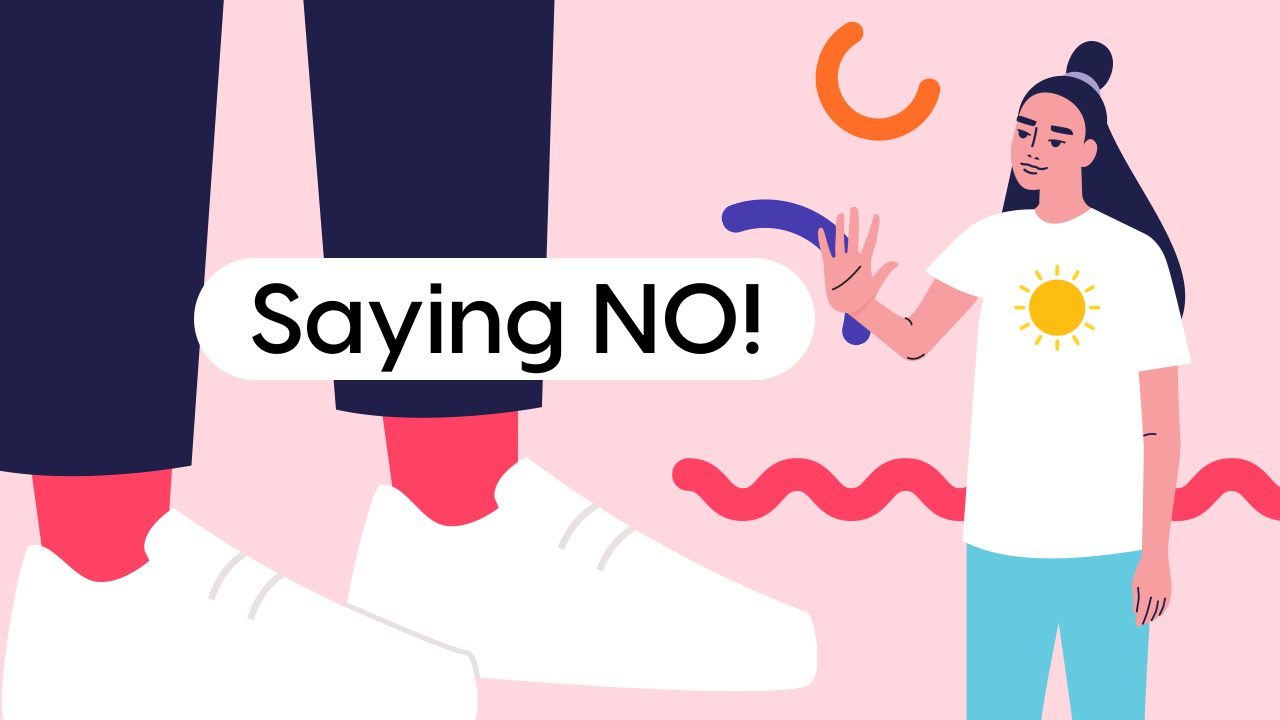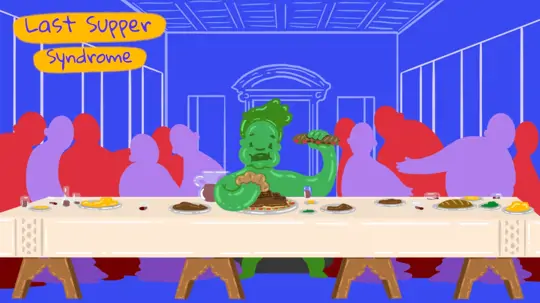
Start feeling better today!
Connect with your therapist today and take control of your life like our 850.000 happy clients.
Get StartedNo as an Answer!
Having healthy personal boundaries is very important for any relationship. While some of us have very strict boundaries, some of us may shy away from defining these boundaries, fearing that it will damage the intimacy between us and the other person. One of the things we need to be aware of about this issue is that both situations may be due to not being able to say no.
If a person thinks that they can't say no when they encounter unwanted behavior, they can develop a mechanism to protect themselves and set very strict boundaries. Likewise, someone who starts to feel uncomfortable with the lack of boundaries in relationships may not be able to change this situation because they cannot say no.
To set healthy personal boundaries, it's important to be able to say no and realize that saying no is not selfish. Let's take a look at a few tips that will be useful to consider when saying "no".
How Can I Say No?
Many of us, when we do not want to accept an offer or request, may hesitate to say no
in order not to offend the other person. This wish to be kind leads to not being able to say no, but keep in mind that this act of kindness may be perceived as indecision by others, leading to their continued insistence. It is still possible to say no in these situations.
4 Tips for Saying No
By integrating these tips into your life, you can say no in a healthy and polite way.
Be Prepared to Reject Requests
You should know that the other person will criticize you by questioning your no
, and may even try to insult you if you do not do what they want. Try to anticipate the ways they might argue with you so that you change your mind. It may be helpful to rehearse this conversation with a friend or family member beforehand. When you say no, have your friend with whom you rehearse say the answer you anticipate. In this case, practice stating that your answer is still no.
If there is a clear, non-specific reason for saying no, say it. For example, you might say I have something to do that day, so I can't help you
. If your reason for saying no is that the other person is difficult, don't tell them. Without explaining why, just say you can't do what they want. The fact that your reason for saying no points to their personality makes the situation much worse than saying nothing. Remember that when you say no to anyone, you don't have to give an explanation.
Be Realistic About What You Can Do
Keeping a calm and realistic attitude will help the other person become less angry. Emotions, both positive and negative, are contagious. As previously stated, you can practice by reenacting the situation. Rejection may cause some people to become manipulative. In this case, they will want to get you emotional in order to gain your support.
By remaining consistent in your demeanor, you can express that there is nothing wrong with your response and that there is nothing to be truly upset about for them or anyone else. Your tone of voice and body language can express yourself far more effectively than words. This attitude communicates that you believe you have done nothing wrong by saying no and that this is a normal part of life.
Be Respectful
Respect is very important to everyone, and some people may be more comfortable with rejection if you pay them respect. If possible, say some words that express your respect for the other person when you say no, provided that it is appropriate and true to the situation. For example, you could use a sentence like "I respect the effort you put into making this happen."
Avoid exaggerations just to praise them, and be careful not to lie. Say the word "respect" clearly as you speak. For example, you could say, "I respect and thank you for asking for my help with this, but unfortunately I will not be available due to a previous promise I made to someone else." This will help you fight the urge to insult them and respond calmly when they insult you.
Be Persistent
When you say no to some people, they may force you to change your mind. Try to be prepared to repeat your no once or twice in a realistic and calm tone. Then, you can make an effort to end the conversation or start talking about another topic. Don't linger on the issue, allowing them to argue or try to persuade you to change your mind. If your tone and body language are not defensive, it indicates that you are confident and your answer will not change. The other person will eventually give up.
You need to accept that you have the right to say no to everyone, but there are options and consequences that you have to deal with. If it's not safe for you to say no, get help or avoid it altogether. It's OK to leave the conversation before the other person feels good about your no. They'll just have to accept this answer, and they can live with it.
You always have the right to say no to anyone, but the way you say no can make a big difference in your relationships. The tips we've mentioned above can help you minimize the other person's frustration that you won't do what they want. If saying no will cause the other person to hurt themselves or do something else dangerous, get help from a therapist, a lawyer, or the police.





